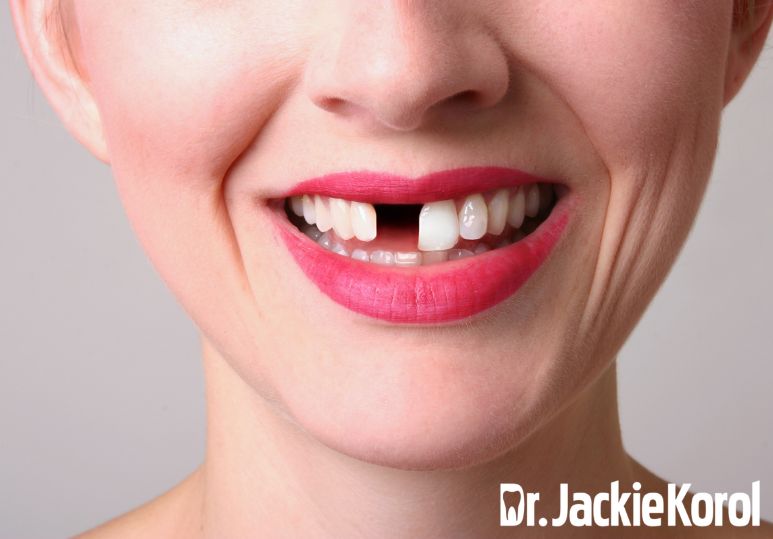Emergency Dental Care for Chipped or Broken Teeth: What to Do

A chipped or broken tooth can be a painful and distressing experience, often requiring immediate attention. Whether it's a result of an accident, a sports injury, or even biting into something hard, knowing what to do in such a situation can make a significant difference in preserving your dental health. In this article, we will explore emergency dental care for chipped or broken teeth, with a focus on treatment options such as dental fillings, veneers, crowns, and root canals.
Contact Your Dentist
The first and most crucial step when you chip or break a tooth is to contact your dentist immediately. Explain the situation and provide any details about the injury. Your dentist can provide guidance over the phone and schedule an emergency appointment to assess the damage and provide timely treatment.
Assessment and Diagnosis
Dental Examination: When you arrive at the dental clinic, your dentist will perform a thorough examination of the affected tooth. They will assess the extent of the damage, looking for fractures, exposed nerves, or any other issues that may require attention.
X-Rays: In some cases, X-rays may be necessary to evaluate the tooth's root and surrounding structures. This helps the dentist determine if there is any hidden damage that requires treatment.
Treatment Options for Chipped or Broken Teeth
Dental Filling: Dental fillings are commonly used for small to moderate chips or minor fractures. If the damage is limited to the enamel and doesn't involve the inner layers of the tooth, your dentist may recommend a dental filling. The filling material, often composite resin, is matched to your tooth's color for a natural appearance. The dentist removes the damaged portion, cleans the area, and fills it with the composite material, restoring the tooth's shape and function.
Veneer or Crown: For more significant chips or fractures that affect a larger portion of the tooth, a dental veneer or crown may be necessary. Dental veneers are thin shells made of porcelain or composite material that are custom-fitted to the front surface of the tooth. They can improve the tooth's appearance and strength. Dental crowns, on the other hand, cover the entire tooth and are often recommended when the tooth has extensive damage or after a root canal treatment. Crowns provide protection and restore the tooth's functionality.
Root Canal Treatment: When a chipped or broken tooth involves damage to the pulp (the innermost part of the tooth containing nerves and blood vessels), a root canal may be necessary. During a root canal procedure, the dentist removes the damaged pulp, disinfects the area, and fills it with a biocompatible material. This process not only saves the tooth but also alleviates pain and prevents further infection.
Aftercare and Recovery
After receiving treatment for a chipped or broken tooth, it's essential to follow your dentist's post-procedure instructions. This may include avoiding hard or sticky foods, practicing good oral hygiene, and attending follow-up appointments for monitoring.
While accidents can happen, there are steps you can take to reduce the risk of chipping or breaking your teeth. These include wearing protective gear during sports, avoiding biting into extremely hard objects, and using teeth for their intended purpose, rather than as tools for opening packages or bottles.
A chipped or broken tooth can be a painful and alarming experience, but with prompt action and the right treatment, you can restore your dental health and smile. Remember to contact your dentist immediately, as they will assess the damage and recommend the most appropriate treatment, whether it's a dental filling, veneer, crown, or root canal. Following their guidance and practicing good oral hygiene will ensure a swift recovery and the preservation of your beautiful smile.
Written on behalf of Korol Dental.
FAQs
The treatment option depends on the extent of the damage. Dental fillings are typically used for small to moderate chips, while veneers or crowns are recommended for more significant damage. If the pulp is affected, a root canal may be necessary. Your dentist will evaluate the situation and make a recommendation based on your specific case.
It's not advisable to delay treatment, even if a chipped or broken tooth is not causing immediate pain. Dental issues can worsen over time, and what may seem minor now could lead to more significant problems in the future. Prompt treatment can often prevent complications and preserve the tooth.
While accidents can happen, there are preventive measures you can take. These include wearing protective gear during sports activities, avoiding chewing on hard objects like ice or pens, and refraining from using your teeth as tools for tasks like opening packages. Practicing good oral hygiene and regular dental check-ups can also help identify and address issues before they become severe.
CONTACT US
Questions? Comments? Call us today at 1-403-245-9099 or fill out the form below:


